Special Feature
Kyushu University's Response to the Novel Coronavirus Disease (COVID-19)
The COVID-19 pandemic continues to spread, having a powerful impact on every aspect of social and economic lives.
Under these circumstances, Kyushu University has made the health and well-being of its students, faculty, staff, and community members its top priority.
In addition, in order to overcome this situation, we are implementing a response based on the "With & Beyond Corona" concept of living with the new coronavirus infection and at the same time overcoming it to create a new situation.
For example, in response to the COVID-19 pandemic, Kyushu University is implementing a wide range of initiatives in several fields, including research, medical care (Kyushu University Hospital), and student support and education (online classes).
For more information, our dedicated COVID-19 Updates and Resources page has the latest facts to keep you up to date.
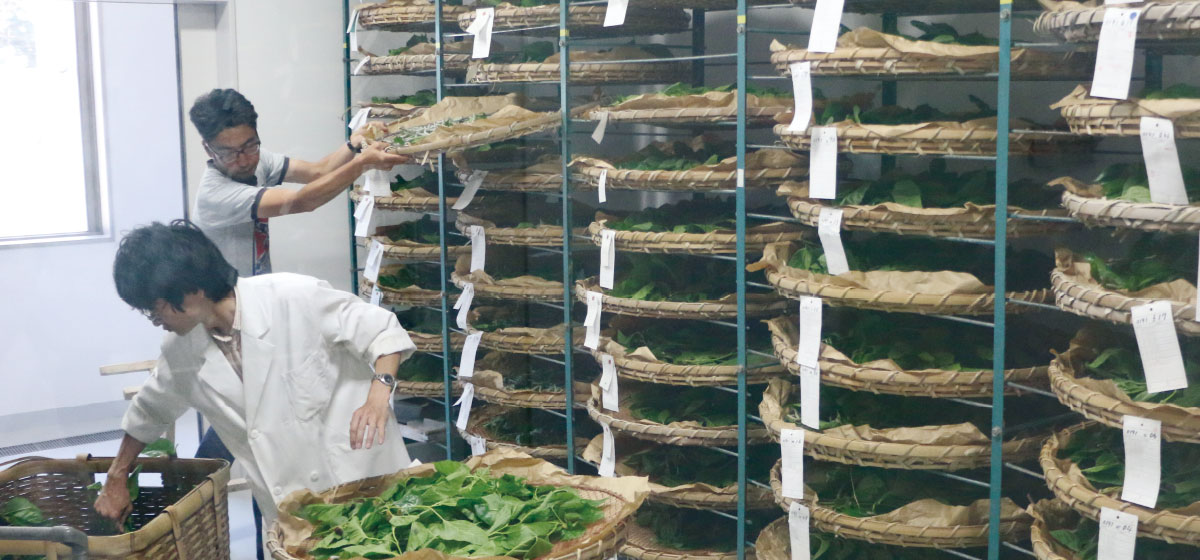
Faculty of Agriculture Silkworm Research Center Succeeds in Developing Vaccine Candidate Proteins
Among the 450 types of silkworms bred at Kyushu University, Professor Takahiro Kusakabe at the Faculty of Agriculture has found one capable of internally producing large amounts of recombinant proteins that can be used to make vaccines.
In 2018, KAICO Ltd. was founded in Fukuoka City as a Kyushu University venture to commercialize technologies developed by the university, such as recombinant protein expression using silkworms.
Faced with the COVID-19 pandemic in recent months, we have succeeded in developing a vaccine protein candidate for COVID-19.
The spike-like proteins on the surface of SARS-CoV-2 particles are the major surface proteins that the virus uses to bind to receptors, which are other proteins that act as doorways into a human cell.
Kyushu University has succeeded in artificially creating a protein with the same structure as this spike protein.
The development of a vaccine using silkworms will likely allow for mass production at lower costs and contribute to better treatment in developing countries.
Toward the practical use of vaccines, we will push through the research in collaboration with the Faculty of Pharmaceutical Sciences.
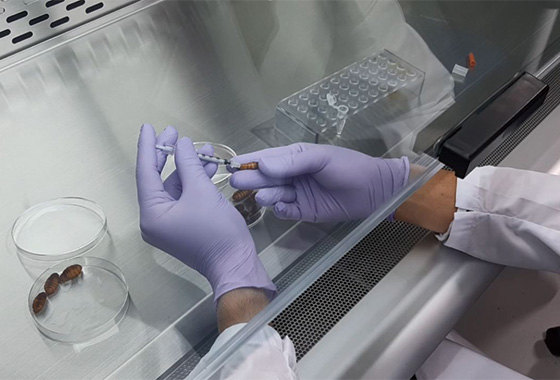
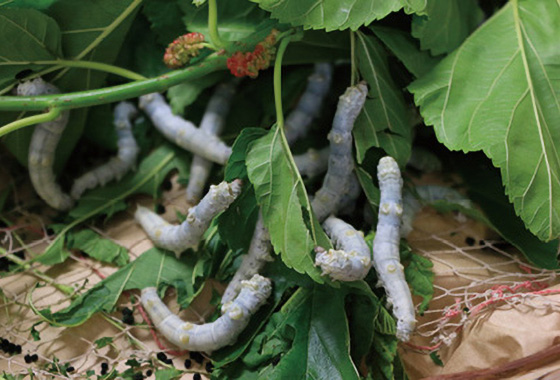
Greenpharma Research Center for Academic Drug Discovery Narrows Down Three Approved Drugs to Be Repurposed as Potential Treatments for COVID-19
A research team led by Professor Motohiro Nishida of the Faculty of Pharmaceutical Sciences at the Kyushu University Faculty is conducting research that explores therapeutic agents in already approved drugs that could be used to treat COVID-19 and has successfully narrowed down three potential candidates.
The Greenpharma Research Center launched in 2015 with the aim of developing innovative drugs that are safe and peaceful for both people and the environment by cooperating cutting-edge techniques of “echo-pharma (or drug repurposing)” and "green chemistry." One of the center's principles is "sustainable pharmacy," which aims to establish an innovative strategy for the treatment of patients suffering from incurable diseases by unraveling a new pharmacological action of already approved drugs.
As a result of further research, we have narrowed down the candidate drugs to one and are currently starting to verify the inhibitory activity of this drug against SARS-CoV-2 infection to human cells.
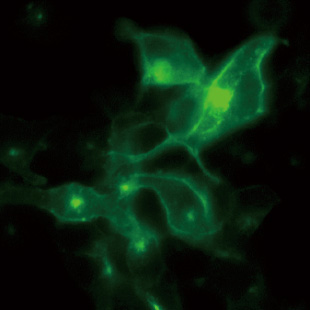
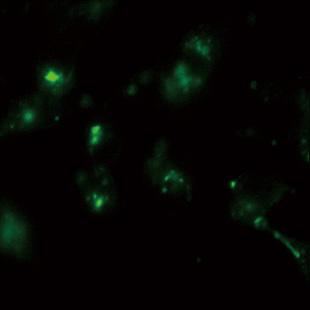
What Epidemiology Can Tell Us About Saving Lives and the Economy
In a study conducted by Professor Shunsuke Managi, Director of Urban Institute at Kyushu University, the research team calculated the value of life that could be saved by implementing social distancing strategies and found that 4,391 trillion yen, or approximately 47% of the global annual GDP, could be saved.
For Japan, the savings would amount to the equivalent of the country's GDP, 536 trillion yen.
By concentrating on and implementing social distancing strategies, Japan stands to save more than the value of a year's worth of GDP.
Savings lives is acceptable because that human capital will subsequently contribute to the economy in the future.
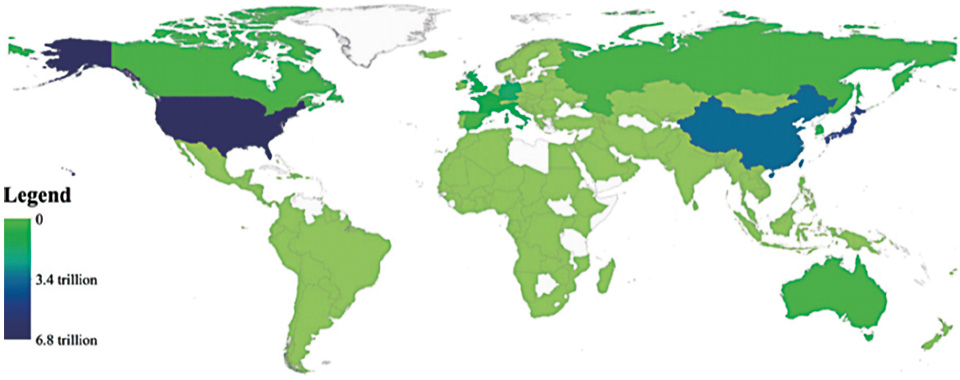
Kyushu University's Measures for Students
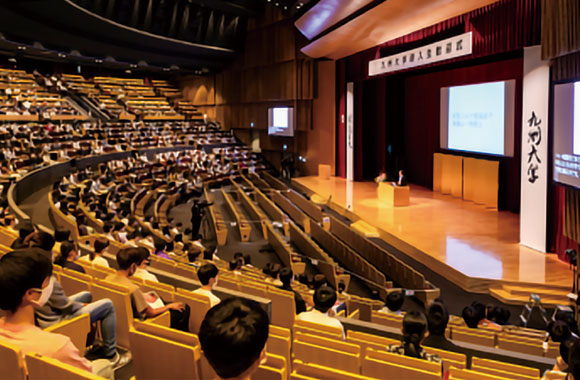
Many Kyushu University students have been adversely impacted by the novel coronavirus disease (COVID-19), including students whose guardians are facing economic hardship and those who have experienced a decrease in income due to having to stay home from part-time work.
Most of the classes have moved online, and the entrance ceremony for new students had to be canceled.
Much the same as other students around the world, student interaction has been severely limited throughout the pandemic, which has caused duress, confusion, and even mental and physical illnesses for some students.
These are all reasons why Kyushu University immediately launched several initiatives to ensure students feel safe studying here.
For example, Kyushu University has established the Emergency Student Support Fund (University-Sponsored Aid), which provides ¥30,000 to students in need of financial assistance upon application to relieve anxiety surrounding their studies.
Students who have been adversely impacted by the novel coronavirus disease (COVID-19) are eligible to apply.
We have also set up the Novel Coronavirus Disease (COVID-19) Student Relief Fund to provide further support for students experiencing financial difficulties.
This was made possible thanks to the generous assistance offered by the wide range of people, including alumni and individuals on-campus, who all answered the university's call for help.
Together with the Emergency Student Support Fund, this fund reached many students and helped alleviate their financial stress.
New Student Welcome Ceremony
The university was finally able to hold an entrance ceremony for new students in September.
We wanted new students who hadn't made it to campus to come and meet their friends, so we took careful precautions, dividing the ceremony into two parts via a reservation system, with one-half of new students in attendance at each.
About 600 new students attended from each school and enjoyed mingling among new friends.
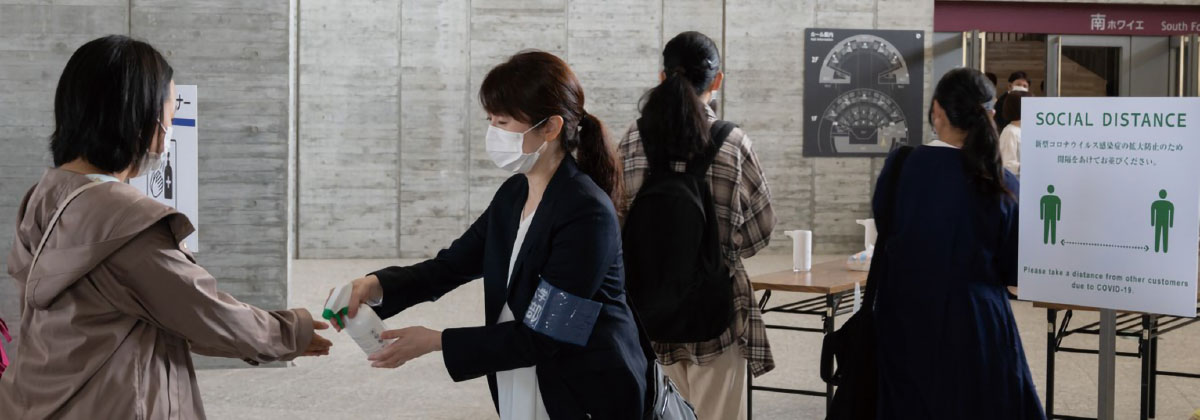
Mental Health App Supports University Students
Reducing the mental stress of students has also been an important topic for us.
To better support the well-being of our students, researchers at Kyushu University have developed a unique smartphone app called “Mental APP,” which combines psychiatry and user-centered design.
Through continued development of this app, we hope to expand use at Kyushu University and eventually branch out to other universities.
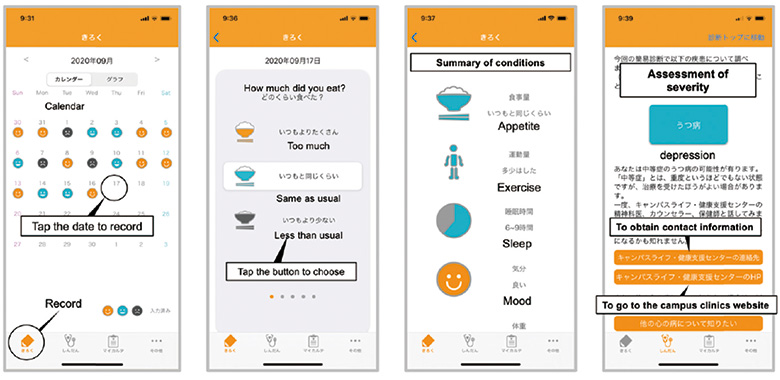
The Three Characteristics (Environment, Support, Analysis)
Since 2013, our university has been ahead of other universities in the nation in developing a digital learning environment across the university with the keyword "PC required."
Utilizing the M2B (Mitsuba) Learning Support System*, the basis for this digital learning environment, the university is offering online classes in conjunction with a teleconference system (spring semester: approximately 4,900 courses).
In addition, a student-led support organization called "quickQ" was established, and students were involved in the establishment of the system and the design and implementation of the inquiry flow was devised in just 10 days before the service was launched.
Since Kyushu University has been accumulating teaching and learning data since 2014, we can compare this year's data with last year's and evaluate the results.
We will continue to analyze the data accumulated for the online class evaluation and use it to review student learning and improve teaching materials for teachers.
- * Coined an acronym for three major systems (Moodle, Mahara, BookQ)
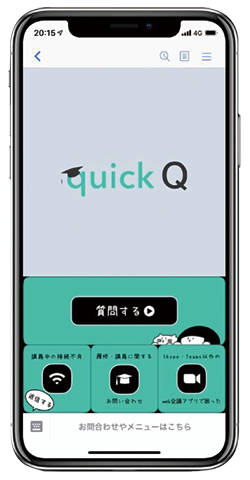
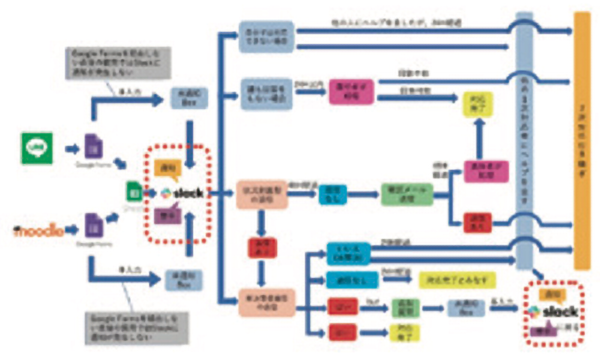
Confronting the COVID Crisis
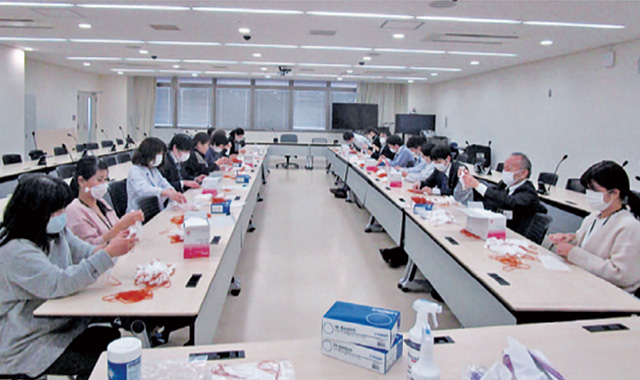
The two major missions of Kyushu University Hospital are: (1) to engage in COVID-19 treatment in the Fukuoka area and make direct contributions to infection control and (2) to maintain the hospital's functions for advanced medical care outside of COVID-19 treatment and ensuring its role as a "last bastion" for regional medical care.
The hospital is playing a central role in controlling infectious diseases through sharing information in real-time with Fukuoka Prefecture, Fukuoka City, and area health centers.
All of the hospital staff, including doctors, nurses, pharmacists, medical technical staff, and clerical staff will face medical care challenges without giving in to fear of risk and keep tackling against COVID-19 by converging the collective strengths of Kyushu University such as the scientific power of new therapeutic drugs and vaccine development, creativity, and rich and varied human qualities.
Fighting COVID-19 in Asia: Teleconference Held Between Kyushu University* & National Taiwan University
- * Kyushu University Institute for Asian and Oceanian Studies (Medicine and Health Cluster) / Telemedicine Development Center of Asia (TEMDEC)
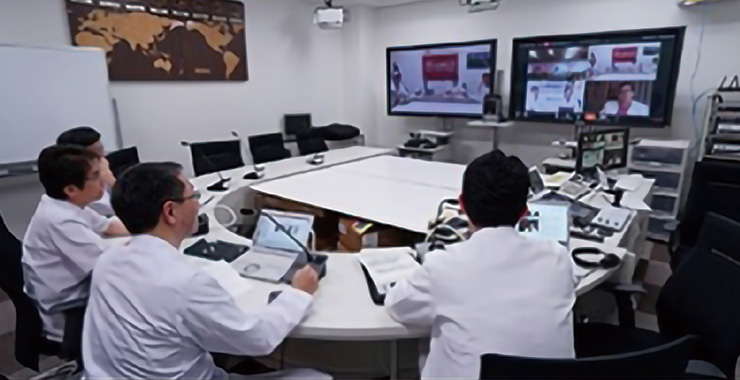
Because COVID-19 is such a new disease, much is still unknown about its clinical outcomes and treatment, which has made it a serious issue worldwide.
With the aim of sharing information on current efforts and treatments in countries around the world, Kyushu University held a teleconference entitled “How to tackle with COVID-19 in Asia,” which brought together Kyushu University Hospital and National Taiwan University.
The first teleconference was attended by more than 3,800 participants from around the world, including those from medical facilities in the Philippines and Singapore, which have seen a large number of cases.
The second conference was attended by participants from 116 locations in more than 14 countries and regions worldwide.